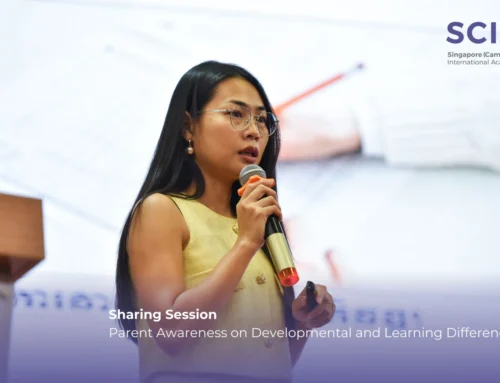When your child struggles to communicate, every parent wants the best help possible. But in Phnom Penh, families often hear two very different terms: “trained” and “qualified” in speech therapy. At first, they may sound the same. In reality, the difference can shape whether your child makes steady progress—or continues to face barriers.
This blog will break down what these terms mean, why the distinction matters, and how OrbRom Center ensures families in Phnom Penh receive truly professional speech therapy services.
What Does “Trained” in Speech Therapy Mean?
A person who is trained in speech therapy has usually attended short workshops, shadowed therapists, or learned therapy techniques online or through colleagues. They may know basic activities like:
-
Practicing sounds with flashcards
-
Encouraging children to use new vocabulary
-
Leading group language games
While this can be supportive, training alone doesn’t equal full therapy qualifications. For instance, a trained assistant may help a child practice “S” sounds but may not recognize that the child actually has apraxia or an auditory processing disorder.
Learn more about what real therapy involves here: What is Speech Therapy?
Why Training Alone Isn’t Enough
“Trained” staff are important allies, but without deeper education they may:
-
Miss key warning signs – such as stuttering, swallowing difficulties, or underlying neurological issues.
-
Rely on generic methods – which don’t match a child’s unique developmental profile.
-
Delay access to professional help – which is risky, because early intervention is often the most effective.
In Phnom Penh, families sometimes spend months with “trained” providers before realizing their child actually needs a full evaluation by a qualified speech therapist.
What Makes a Therapist “Qualified”?
A qualified speech-language pathologist (SLP) holds a degree in speech-language pathology, has completed supervised clinical placements, and continues learning through professional development. That level of preparation allows them to:
-
Assess thoroughly using standardized tools and real-life observation.
-
Diagnose accurately—distinguishing between speech, language, fluency, or voice disorders.
-
Plan personalized therapy based on evidence and the child’s goals.
-
Track data and progress so families can see improvements clearly.
-
Collaborate with schools and other professionals for comprehensive care.
For a clear picture of what a professional assessment looks like, see: Assessments at OrbRom Center.
Why the Difference Matters in Phnom Penh
The difference between trained and qualified can mean:
-
A child gains speech clarity within months, instead of years.
-
Families understand exactly why their child struggles, not just that they do.
-
Schools receive the right strategies to support learning.
In Phnom Penh, where demand for therapy is growing, choosing a qualified provider ensures children don’t lose precious developmental time.
For guidance, explore: Best Speech Therapy Services in Phnom Penh
How to Tell if a Provider Is Qualified
Here are simple questions you can ask:
-
What degree or certification do you have in Speech-Language Pathology?
-
How do you assess a child before planning therapy?
-
What methods will you use, and why are they right for my child?
-
How do you measure progress?
-
Will you coach parents and teachers to support learning outside of therapy?
If the answers are vague or avoided, you are likely dealing with someone who is trained—but not qualified.
OrbRom Center: Qualified Speech Therapy in Phnom Penh
At OrbRom Center, all speech therapy services are provided by qualified therapists with the background, expertise, and experience to support real progress. We start with assessments, design individualized therapy plans, and involve families every step of the way.
Our work goes beyond drills—we focus on helping children build confidence, classroom participation, and independence in communication.
Learn more about our services here: Speech Therapy Phnom Penh
Final Thoughts
The takeaway is simple:
-
Trained = knows techniques but limited scope.
-
Qualified = clinically prepared to assess, diagnose, and guide progress.
Both roles matter, but for speech therapy in Phnom Penh, families should always start with a qualified therapist at OrbRom Center. That ensures your child’s voice is supported by professional expertise.
Start here: Speech Therapy Services at OrbRom







